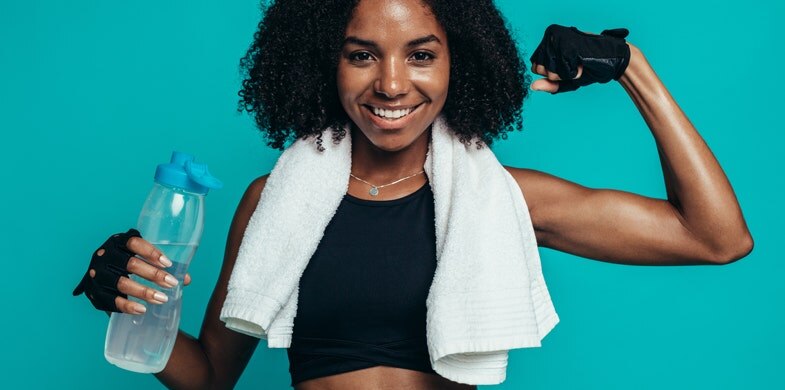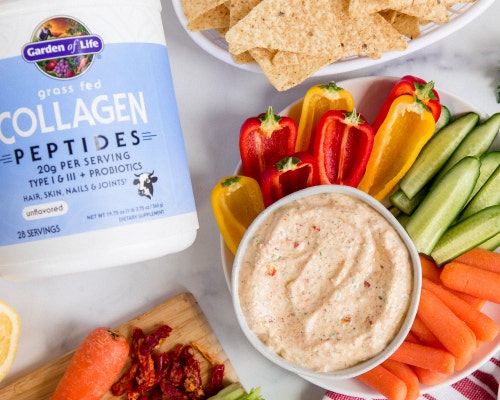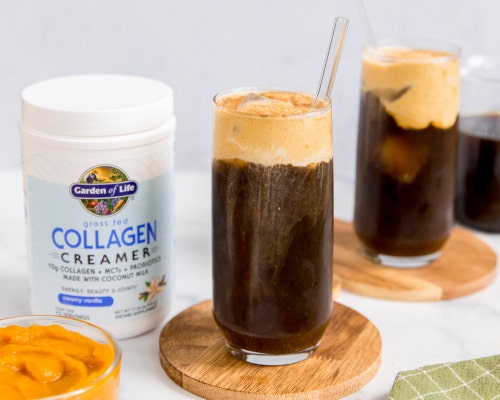Biotin vs. Collagen
- 8/8/22


Biotin & Collagen: The Difference is More Than Skin Deep
Everyone’s buzzing about the beauty of these wellness wonders. What’s the difference and what difference can they make for you?
The age-old problem of aging isn’t pretty. The lines, signs, and declines of time can leave their marks on your face and body. But in the world of wellness, some wonders stand the test of time by helping your face and body withstand it! Two of these age fighting and health-promoting marvels that hold the most promise and praise are biotin and collagen. They’ve become the darlings of the health and beauty industry because they give your face and body the support they need to keep you looking and feeling your best. But if you’re wondering which of these wellness wonders to choose, take a closer look at their differences and similarities to see which may work wonders for you.
The Beauty of Biotin
Biotin is one of the B complex vitamins whose name comes from the Greek word “biotos” meaning sustenance. This is only fitting because it feeds your body’s needs by breaking down the carbohydrates, protein, and fats from food into energy. As a B vitamin, biotin carries these nutrients throughout your body to help your hair grow stronger and longer, make your nails shiny and smooth, keep your skin firm and supple, preserve your vision, and help your nervous system function properly.
The Strengths of Collagen
Collagen is one of the most abundant structural proteins in your body. That’s a good thing because it does a lot of good by maintaining the youthfulness of your skin, the flexibility of your joints, the elasticity of tendons and ligaments, the integrity of your muscles, and the health of your hair and nails. It’s collagen that provides your body with structural support and strength, as well as allowing your tissues to naturally repair and renew themselves. When you’re young, your body produces plenty of collagen. But as the birthdays add up, your body generates less and less. That’s when your skin starts sagging and wrinkling. Your joints become sore and stiff. Your muscles get weak. And your hair, skin, and nails lose their luster and strength.
Their Difference Makes a Difference
The biggest differences between biotin and collagen are seen in their forms, functions, and claims to fame. Collagen is a structural protein that your body can produce on its own, while biotin is a vitamin that it can’t. And while biotin works by metabolizing the nutrients you eat to build proteins throughout your body, collagen is one of the proteins being built to give your body its shape and structure. Finally, biotin is known and loved for helping your hair, skin, and nails stay healthy and strong. Yet collagen has earned a loyal following for also supporting the health of your joints and muscles, along with your skin, hair, and nails.
Common Bonds Between the Two
Both biotin and collagen offer enormous health and beauty benefits for your hair, skin, and nails. And they’re both loved and lauded by beauty buffs, fitness fanatics, and health seekers who want to look and feel their best.
Is It Okay to Take Biotin and Collagen Together?
While biotin and collagen can work wonders on their own, they may be even better taken together! See, biotin and collagen each have their own unique ways of supporting your body both inside and out. When taken together, you get their full range of beauty and health benefits to maximize your wellness routine. Since only a few foods are good sources of biotin and collagen, it can be hard to get enough to reach your health and beauty goals. Consider taking high-quality supplements of biotin and collagen to supplement your body’s supply.
Whether you want younger-looking skin, healthier hair, longer nails, stronger muscles, or healthier joints, biotin and collagen can make a healthy and beautiful difference in how you look, feel, and live.





